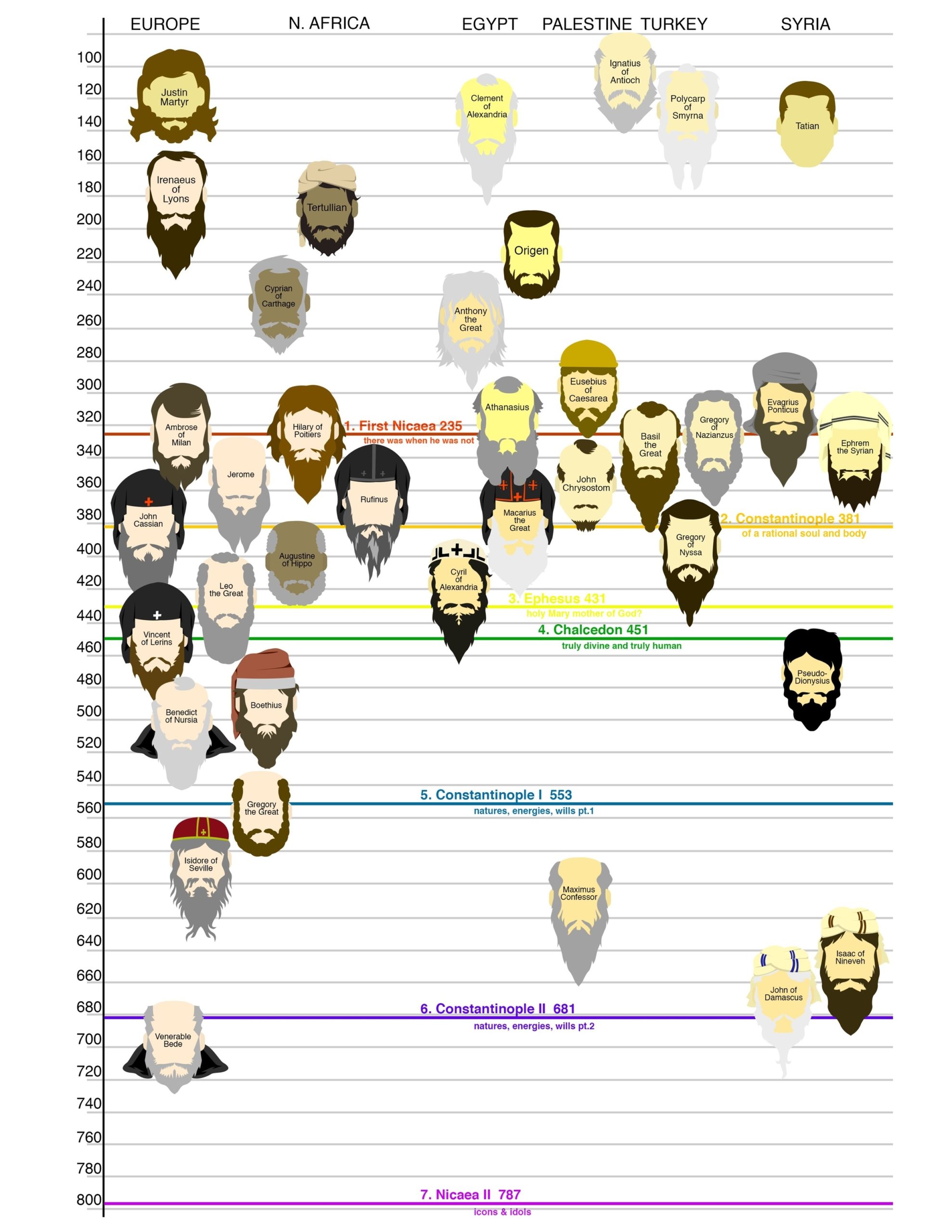
Patristic writers are early Christian writers who are designated Church Fathers. The period of the Church Fathers, commonly called the Patristic era, is generally considered to run from the end of New Testament times or end of the Apostolic Age (c. AD 100) to either AD 451 (the date of the Council of Chalcedon) or to the Second Council of Nicaea in 787 . Patristic literature is generally identified today with the entire Christian literature of the early Christian centuries, irrespective of its orthodoxy or the reverse . The works of the Apostolic Fathers contain the earliest patristic literature. By the mid-2nd century, Christians wrote to justify their faith to the Roman government and to refute Gnosticism .
ignificant patristic authors include Justin Martyr, Origen, Tertullian, Eusebius of Caesarea, Athanasius, Basil the Great, St. Gregory of Nyssa, Gregory of Nazianzus, John Chrysostom, Ambrose, Ephraem Syrus, St. Jerome, Theodore of Mopsuestia, St. Cyril of Alexandria, St. Maximus the Confessor, and Pope Gregory I . These theologians focused on Christianity’s relationship with Judaism, the establishment of the New Testament canon, apologetics (the ‘defense’ or ‘explanation’ of Christianity), and doctrinal discussions that sought to achieve consistency of faith, in particular within the Christianized Roman Empire .
Patristic literature is a body of literature that comprises those works, excluding the New Testament, written by Christians before the 8th century. Most patristic literature is in Greek or Latin, but much survives in Syriac and other Middle Eastern languages . The undoubtedly orthodox Fathers themselves cannot be properly understood in isolation from their doctrinally unorthodox contemporaries. Early Christian literature exists, and deserves to be studied, as a whole and that much will be lost if any sector is neglected because of supposed doctrinal shortcomings .
